US naval agency reveals undisclosed American military sex crimes in Japan's Okinawa
The US military is once again hit by revelation of sexual scandal after the United States Naval Criminal Investigative Service (NCIS) case files showed undisclosed US military sex crimes in Okinawa.
The naval agency investigated at least eight sexual offenses by US military forces against Japanese women in Okinawa between 2017 and 2019, but none of them were reported to Congress or the public.
Perpetrators had not been punished under Japanese law nor had their cases appeared in the annual reports produced by the Pentagon’s Sexual Assault Prevention and Response Office for the US Congress, says American non-profit news organization the Intercept.
Co-chair of the feminist group Okinawa Women Act Against Military Violence and chair of the Rape Emergency Intervention Counseling Center Okinawa, Suzuyo Takazato, says it is a familiar pattern.
“Both the US and Japanese governments want to minimize people’s awareness of the number of crimes committed by US service members on Okinawa. They think if this information becomes public, it will harm US-Japan relations. They believe the US-Japan relationship should take priority over the rights of Okinawans.”
The US military's sexual crimes is revealed against the backdrop of public anger and resentment toward the American military forces in Okinawa.
A survey of residents conducted by Japan’s public broadcaster, NHK, showed 26 percent of Japanese respondents called for all US bases to be removed from their island, and another 51 percent wanted them to be reduced to a level equivalent to mainland Japan.
Okinawa — the poorest prefecture in Japan — is the reluctant host to 31 US military bases, which occupy approximately 15 percent of the main island. Although the prefecture consists of less than one percent of Japan’s total land mass, it has 70 percent of the country’s US facilities; 11 of the bases in Okinawa belong to the US Marine Corps.
According to the Intercept, packing so many military facilities onto Okinawa concentrates many of the problems there: aircraft accidents, environmental contamination, and crime, particularly against women.
Takazato and the members of Okinawa Women Act Against Military Violence say have uncovered the earliest sexual attacks started soon after the US invasion of Okinawa in 1945 and have continued unabated to the present day.
They said the total number of victims of US military rapes runs into the hundreds, but "many cases remain hidden."
'Merely cosmetic changes'
In mainland Japan and overseas, people are aware of only a few of these crimes, notably the rape of a 12-year-old girl by three US service members in 1995 and the rape and murder of a 20-year-old woman by a former Marine in 2016.
The events prompted mass protests by tens of thousands of Okinawans demanding the revision of the Japan-US Status of Forces Agreement, or SOFA, but nothing happened as the US and Japan only promised to make improvements to SOFA, changes that turned out to be merely cosmetic.
The failure of the US military and Japanese civilian judicial systems to provide justice for women sexually attacked by US service members on the island comes as SOFA gives the military jurisdiction over service members who commit offenses while in the performance of official duty.
It only requires suspects to be handed over to Japanese authorities after charges have been filed.
Such loopholes have allowed the US military to unilaterally determine what constitutes “on duty,” and they have impeded Japanese police’s ability to interview suspects.
Reports also say many of the US perpetrators escape justice as many of the rape victims fail to come forward and tell Okinawa police they do not wish to participate in investigations.
Takazato said, “Okinawa is a paradise for US service members wanting to sexually assault women. They have the mentality that they won’t be punished here, and they think Okinawan women don’t report sexual assaults.”
She noted that, “When it comes to sexual crimes, this victim-blaming extends throughout the Japanese justice system. But it is even worse for victims of the US military. Because the authorities prioritize Japan-US relations over the rights of Okinawans, prosecutors decline cases where the accused is a US service member.”

Yemen strikes US aircraft carrier, Israeli target in reprisal for deadly attacks

US ‘brutality’ won't cover up its military failure in Yemen: Ansarullah spox
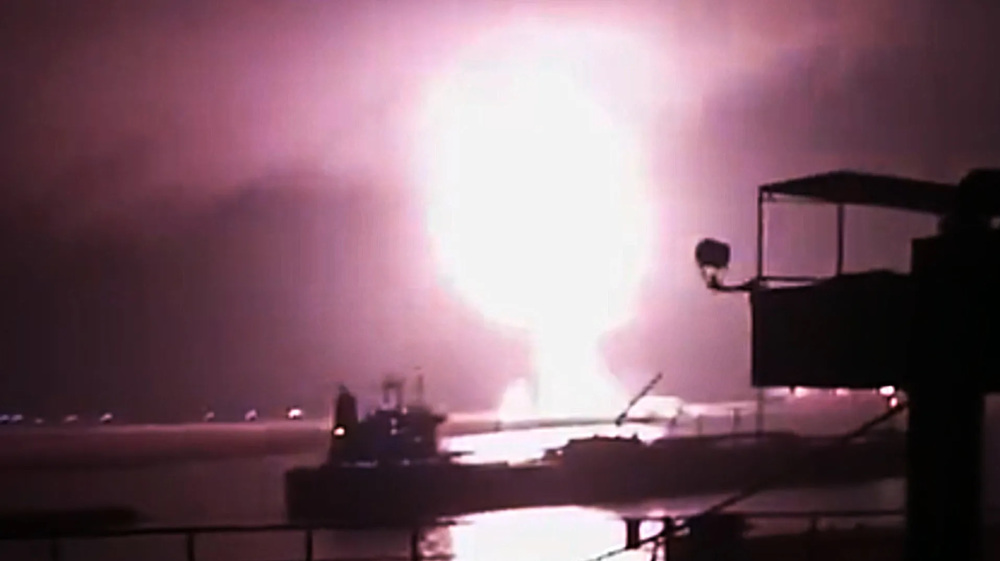
‘US attacks on Yemen triggering widespread oil spill, environmental hazards for region’
Yemen warns US, West: We have 8 million fighters ready, may expand our war
Gaza’s humanitarian crisis deteriorating ‘beyond imagination’: UN chief
US announces new Iran sanctions despite ongoing nuclear talks
Iraqi MP files lawsuit against Syria’s leader Julani over 'terrorist' past
Iran urges Germany to probe wartime supply of chemical weapons to Iraq
Over 65,000 children hospitalized for malnutrition as Israel starves Gaza
Hamas condemns Gaza blockade as war crime, demands global action
At ICJ hearings, South Africa says Israel committing genocide with 'impunity'


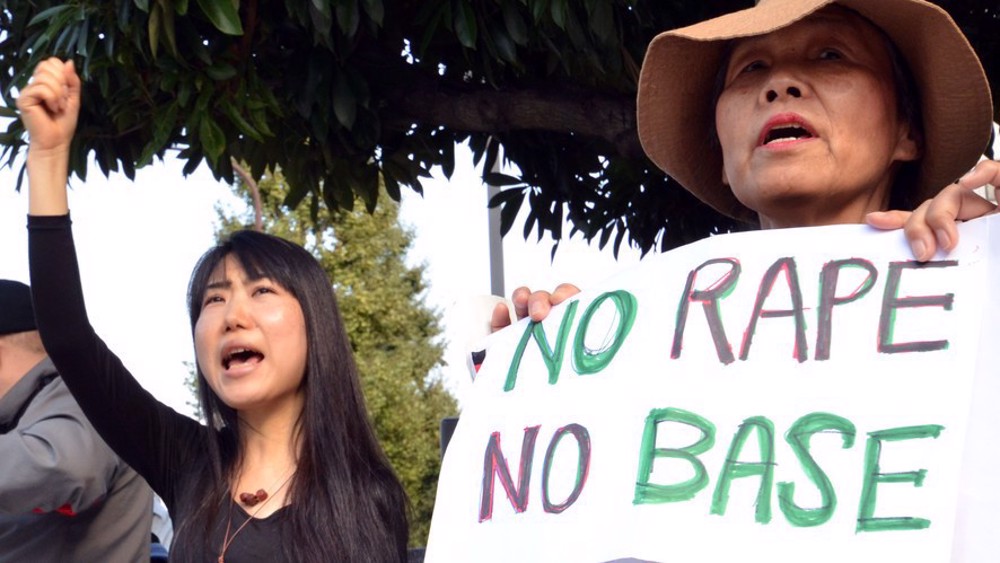
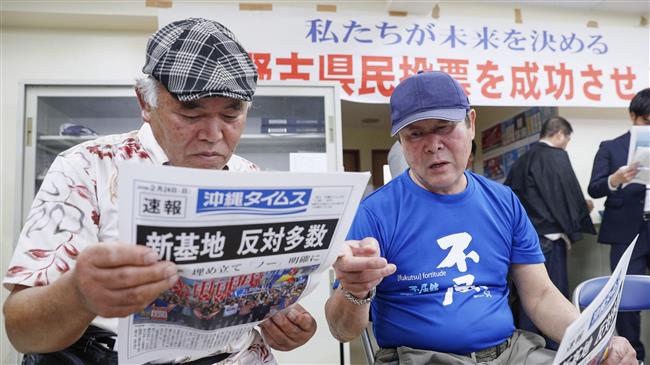



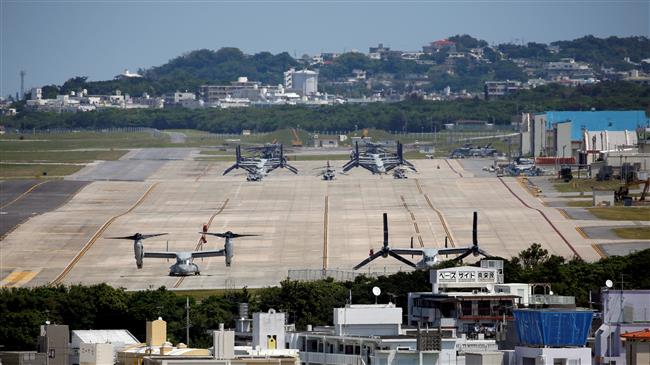
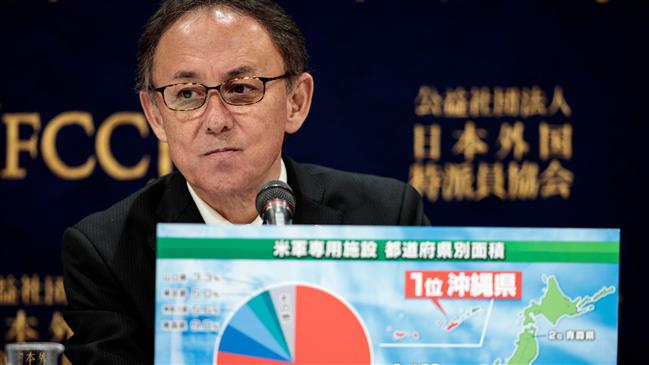
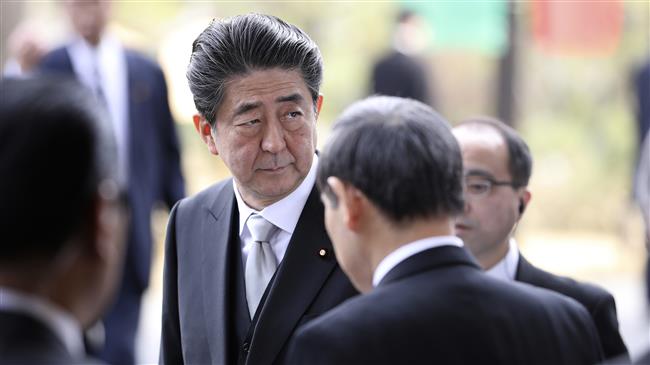

 This makes it easy to access the Press TV website
This makes it easy to access the Press TV website